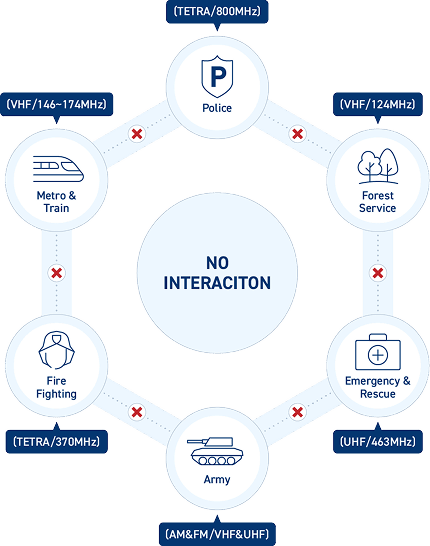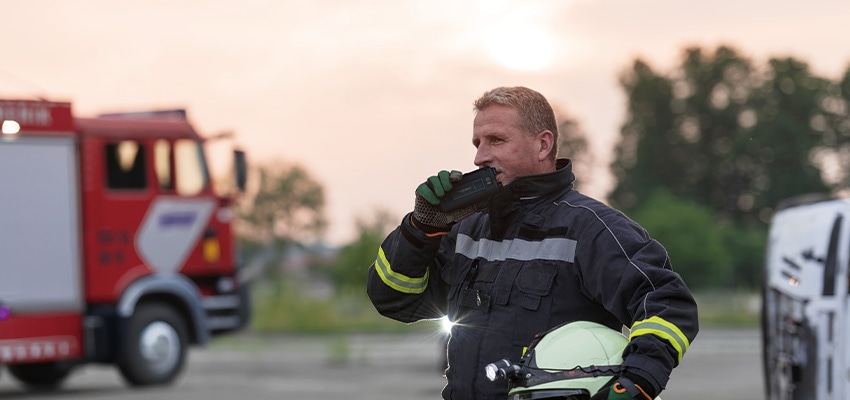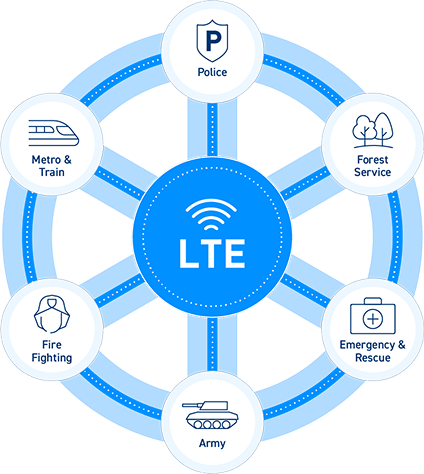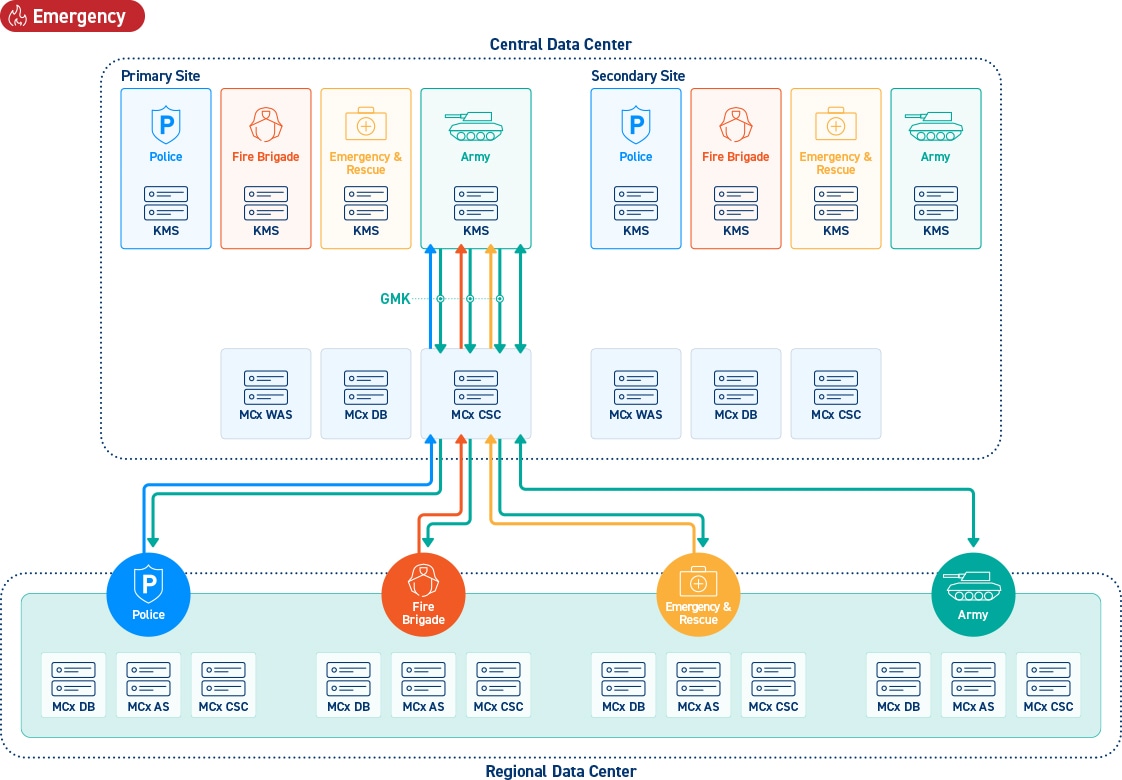Challenge
Public safety agencies have traditionally relied on narrowband PPDR systems, such as TETRA and P25, for critical communications. While these networks provide reliable voice services, their narrowband capabilities limit data transmission and proprietary nature hamper effective inter-agency collaboration during large-scale emergencies or multi-agency operations. A significant challenge arises from the lack of interoperability between these systems. Different agencies often use incompatible platforms, making seamless communication difficult during joint operations. This requires the deployment of specialized gateways or bridging solutions, which can introduce latency, increase operational complexity, and risk miscommunication—critical issues in time-sensitive emergency responses.

Cybertel Solution
To address the challenges of inter-agency communication, Cybertel’s MCX system introduces advanced features that ensure seamless, efficient, and secure communication during emergencies. A key innovation is the Group Regrouping feature, designed to dynamically reorganize communication groups in real-time, enabling faster and more effective coordination when it matters most. Here’s how the Group Regrouping feature revolutionizes inter-agency communication:
-
01. Flexible Communication Groupings
In dynamic emergency scenarios, the needs of different teams or agencies often change rapidly. For instance, fire departments may need to collaborate with police, while EMS teams must coordinate with specialized task forces. The Group Regrouping feature allows system administrators to create, modify, and join communication groups instantly. This flexibility enables emergency teams to transition seamlessly into new communication configurations without the need for additional physical infrastructure, ensuring that the right people are connected when every second counts.
-
02. Dynamic Grouping Based on Situation
Emergencies are inherently unpredictable, requiring communication groups to adapt in real-time. Initially, responders might coordinate as a single group for a search-and-rescue mission. As the situation evolves, the same group can be dynamically reorganized into smaller units focused on specific tasks such as crowd control, medical triage, or evacuation. This dynamic capability ensures that all stakeholders are included in the appropriate communication channels, enhancing situational awareness and response effectiveness.
-
03. Multi-Agency Integration
Emergency operations frequently involve multiple agencies, each operating its own communication systems, which can present significant challenges to interoperability. Cybertel’s MCX system not only facilitates intra-agency communication during normal operations but also integrates independent systems into a unified network for emergency responses. Recognizing that some agencies use proprietary encryption algorithms, the system is designed to overcome these technical limitations, ensuring secure communication between agencies regardless of differing encryption standards.
-
04. Scalability
As emergencies escalate, the Group Regrouping feature ensures that communication systems can scale to meet growing demands. While a small group of responders may be sufficient in the early stages of an operation, the system seamlessly accommodates additional agencies and users as the situation evolves. Cybertel leverages eMBMS-based multicast calls to support dynamic group communication for large-scale operations, enabling all users in dynamically provisioned inter-agency groups to communicate efficiently, even under heavy network loads.
To address the challenges of inter-agency communication, Cybertel’s MCX system introduces advanced features that ensure seamless, efficient, and secure communication during emergencies. A key innovation is the Group Regrouping feature, designed to dynamically reorganize communication groups in real-time, enabling faster and more effective coordination when it matters most. Here’s how the Group Regrouping feature revolutionizes inter-agency communication:






